
Front_Office_Operations
.pdf
Chapter 2 – Reservation procedure
Handling inquires
1.2 What information will be exchanged?
In order to handle an enquiry - and turn it into a reservation - certain information will have to be exchanged between the prospective guest and the reservation clerk or enquiry handler.
|
Questions the prospective guest may ask |
Questions the reservation clerk must ask |
|
Is there are room of a particular type available on a |
|
|
particular date? |
What type of room is required? |
|
What types of room are available? |
When (on what dates) is the room required? |
|
How many people does a room sleep? |
For how long (nights) is the room required? |
|
What facilities are offered in the room? |
How many people will be staying in the room? |
|
What facilities and services does the hotel offer? |
The room rate is x (per person or per night): is this acceptable? |
|
Is the hotel dose to transport/attractions? |
What is the name of the guest (and how is it spelled)? |
|
What is the cost of the room (per person or per night)? |
What is the title of the guest (egg Mr., Mrs., Ms,Doctor, Professor)? |
|
What is the star rating of the hotel? |
What is the guest's address, phone number and/or e-mail address? |
|
What is included in the cost/tariff (e.g.. breakfast, |
|
|
access to the hotel facilities)? |
How would the guest prefer to settle the bill? |
|
Where is the hotel located (and/or how can the guest |
May the hotel take the credit card number of the guest (and if so, |
|
get there)? |
what is it)? |
|
Does the hotel have particular facilities (e.g.. parking, |
How will the guest be arriving at the hotel (e.g.. by car, or by what |
|
childcare, business services)? |
train or flight)? |
|
|
What is the guest's anticipated time of arrival at the hotel? |
|
|
Has the guest stayed at the hotel before? |
|
|
Is the guest a member of the hotel's loyalty programme |
|
|
(or 'frequent guests club')? |
|
|
What is the guest's nationality' |
|
www.cthresources.com |
Page 81 |
|
|
www.cthawards.com |

Chapter 2 – Reservation procedure
Handling advance reservation
2.Handling advanced reservation
2.1Reservation form
2.2Will you accept the booking request?
2.3Can you fulfil the booking request?
2.4Planned overbooking
2.5The bookings diary
2.6Room availability records
2.7Guest histories
www.cthresources.com |
Page 82 |
|
www.cthawards.com |
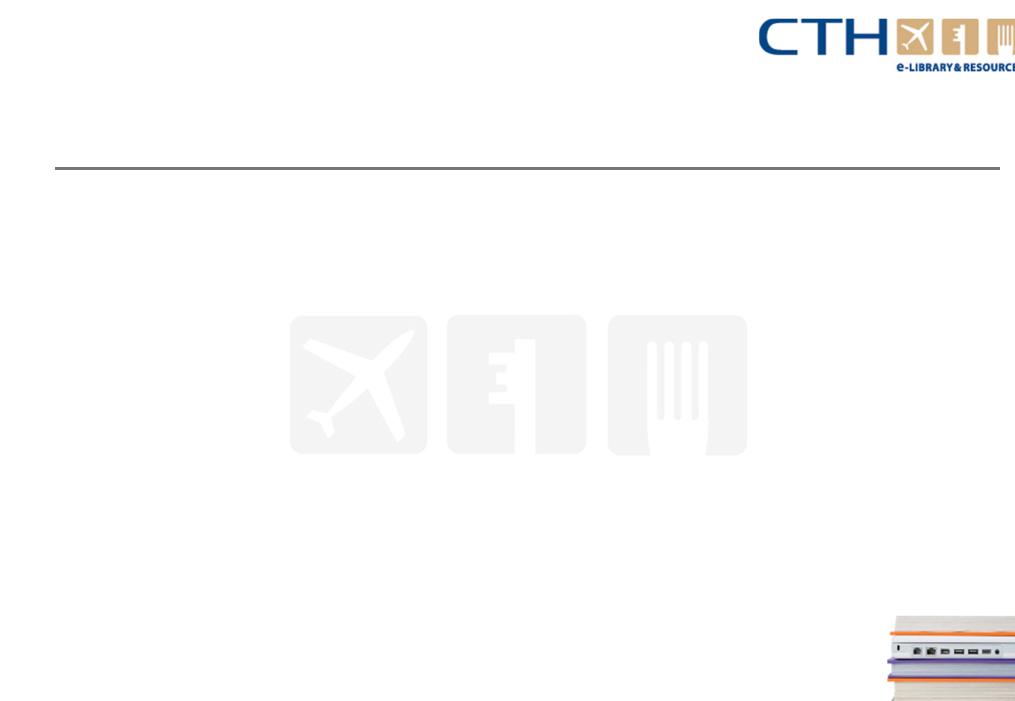
Chapter 2 – Reservation procedure
Handling advance reservation
This is one of the most important and tricky tasks of the hotel Front Office team. Reservation clerks routinely have to sort out multiple requests for accommodation to ensure that every request is dealt with, individual requirements are catered for, the hotel's interests are served - and a positive impression of the hotel is conveyed at every step.
Reservations constitute a 'promise' to guests: that the rooms they have booked will be available when agreed, on the terms agreed, and with special requirements catered for. A mishandled reservation where these promises are not met when the guest arrives - can be a major source of customer dissatisfaction and complaint. Reservations are like a 'picture' of guests and their needs and wants, which helps the front office and hotel management to provide individualised, satisfying service when guests arrive. Reservations may be received many months in advance, and are therefore (as we will see in Chapter 6) a useful tool for forecasting future levels of business. These forecasts can help managers to plan advertising and special offers to stimulate occupancy in 'slow' periods - and to plan the deployment of staff and resources to cover busy periods.
www.cthresources.com |
Page 83 |
|
www.cthawards.com |
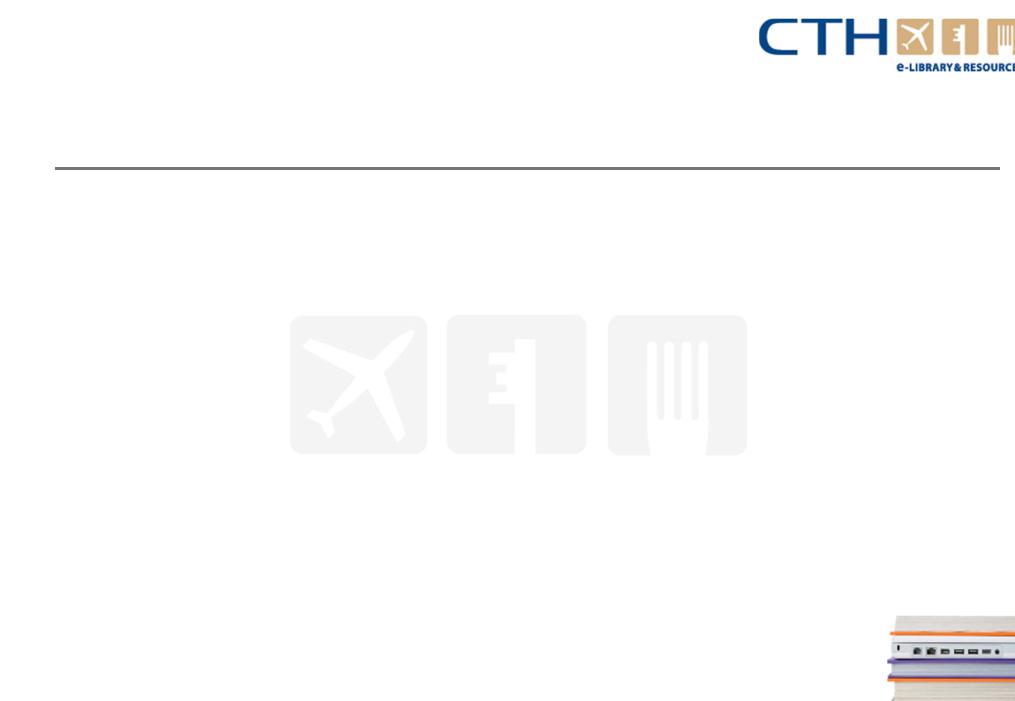
Chapter 2 – Reservation procedure
Handling advance reservation
2.1 Reservation form
A standard reservation form may look similar to Figure 2.1 below. Such a form:
●Provides a hard copy record of the details of the booking request
●Summarises and records the information in a standardised, easy-to-use format
●Acts as a checklist of the information a reservations clerk needs to get from the prospective guest
●Identifies the person who took the booking, in case of queries or errors which need to be followed-up later
●Provides a quick check on the progress of the reservation: has it been processed, has it been
●Confirmed to the guest, has the booking been guaranteed?
●Captures information which may be useful for marketing and/or improving services in future (for e.g.. the source of the booking and how the booking was made)
In a manual system, a completed reservation form becomes the top sheet of an on-going guest file, in which will be placed correspondence, registration documents and so on. It allows quick reference to what has been agreed with guest, to prepare for their arrival at the hotel.
www.cthresources.com |
Page 84 |
|
www.cthawards.com |
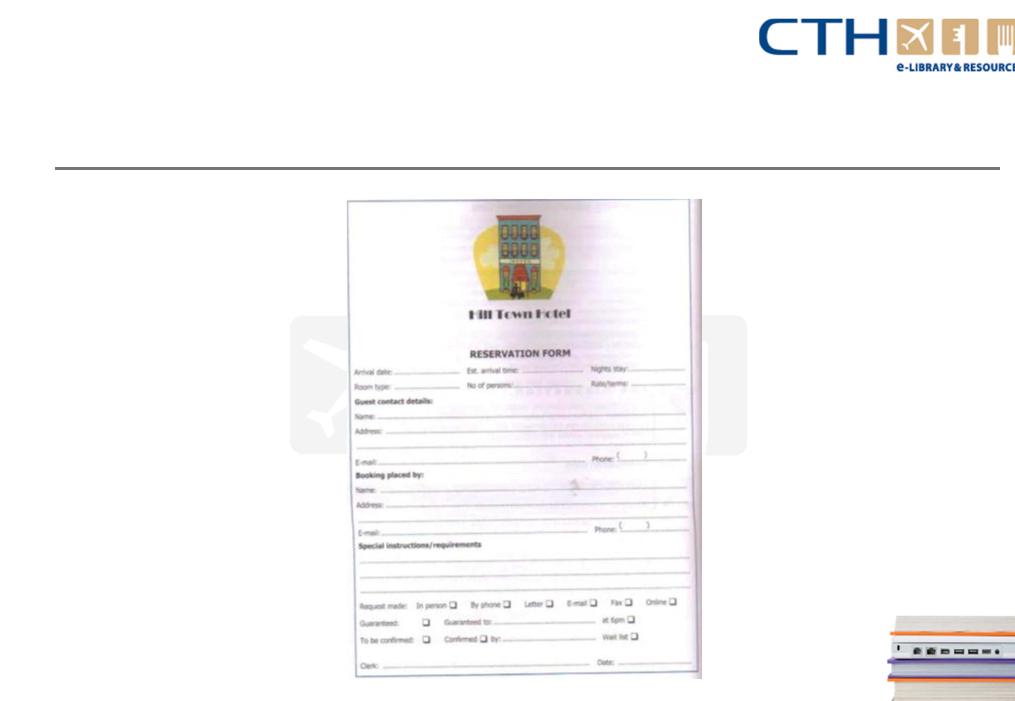
Chapter 2 – Reservation procedure
Handling advance reservation
Figure 2.1: Reservation form
www.cthresources.com |
Page 85 |
|
www.cthawards.com |
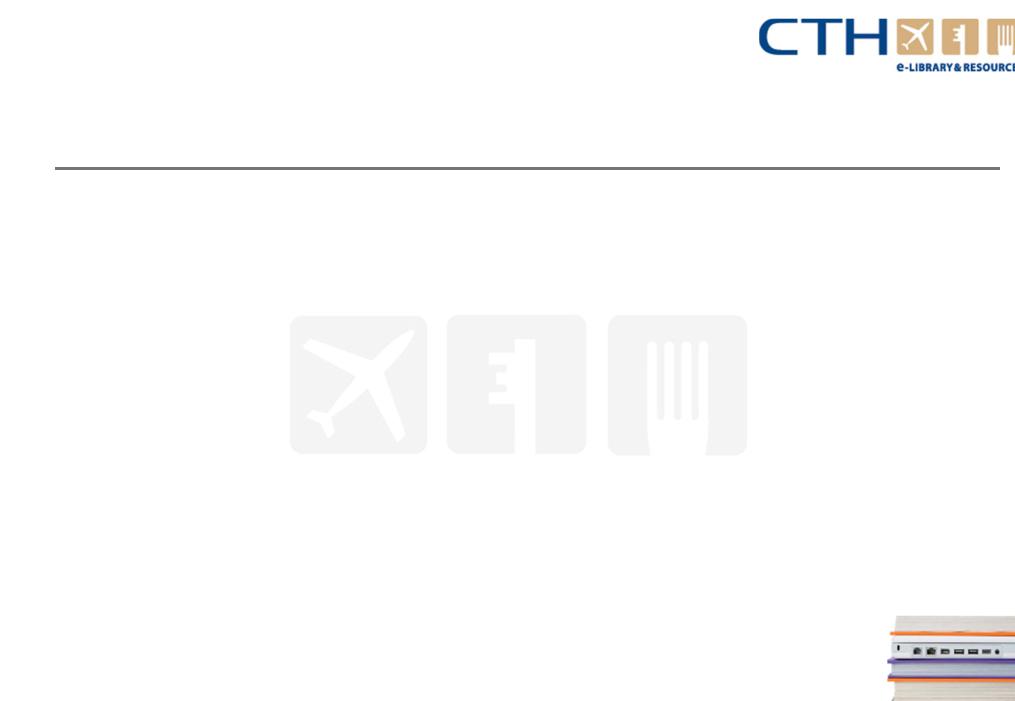
Chapter 2 – Reservation procedure
Handling advance reservation
2.1 Reservation form
If the hotel uses computerised reservation system, the details can be input immediately (from the enquiry letter, e-mail or phone call) into an on-screen electronic reservation form. This has the advantage that the information can be automatically linked to other electronic records and documents, as part of the 'history' of the dealings with the guest. However, Abbott & Lewry (Front Office) suggest that there is still an argument for using a paper-based reservation form to take the initial enquiry, before transferring the details to the computerised system later (during a quiet period).
●It may be quicker and easier to use a paper form, which allows you to 'skip' to relevant fields as required (Without complex on-screen navigation) - especially if you are on the phone with the enquirer and do not have a 'hands-free' telephone headset.
●Using a paper form may enable you to give your full attention to the enquirer - rather than to the computer system!
Transferring the details from the form to the computerised system later may leave the booking records temporarily incomplete: if advance bookings look as if they are nearly full, availability should be checked carefully, and the details transferred immediately to the computerised system.
www.cthresources.com |
Page 86 |
|
www.cthawards.com |
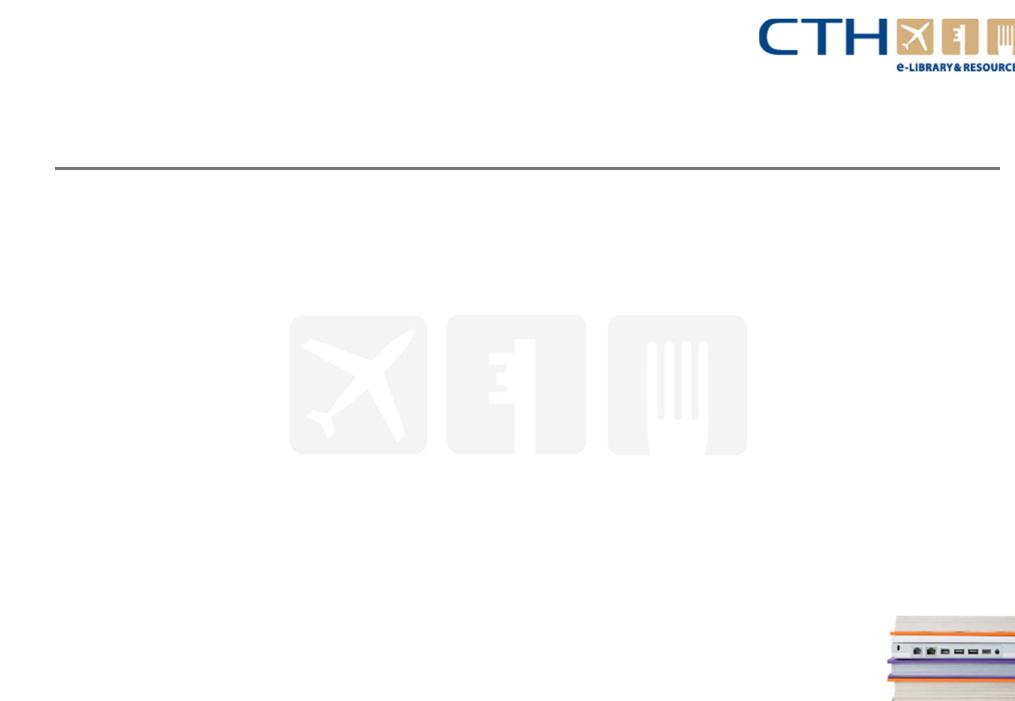
Chapter 2 – Reservation procedure
Handling advance reservation
2.2 Will you accept the booking request?
Of course, the whole point of a hotel is to take guests - and most of the Front Office role will be concerned with ensuring that the hotel gets as many bookings as possible. However, there may be circumstances in which hotel will want to turn down a reservation.
Some guests are more welcome than others…
The Hotel Proprietors Act 1956 provides that a hotel has a legal obligation to accept bona fide (genuine) travellers who 'appear able and willing to pay a reasonable sum for the services and facilities provided, and who are in a fit state to be received', if rooms are available. In the UK, various equal opportunities legislation also imposes a duty not to discriminate unfairly against prospective guests on the grounds of sex, age, race, religion or disability, in the provision of goods, facilities or services. As the Hotel Proprietors Act suggests, a person may legitimately be blacklisted - or refused the services of the hotel - if:
●(S)he has previously stayed at the hotel and failed or been unable to pay the bill.
●(S)he has previously stayed at the hotel and behaved in an undesirable way: causing damage, disturbing other guests, or being abusive towards staff - perhaps while under the influence of
alcohol or drugs.
www.cthresources.com |
Page 87 |
|
www.cthawards.com |
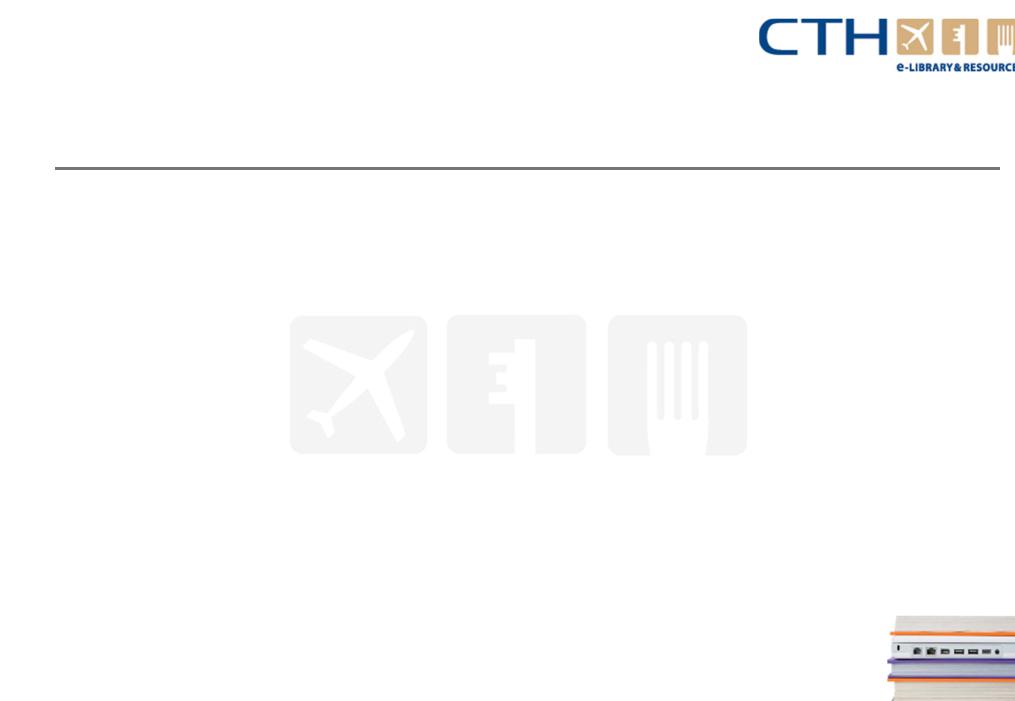
Chapter 2 – Reservation procedure
Handling advance reservation
2.2 Will you accept the booking request? Continued…
●(S)he has been suspected of illegal behaviour while in the hotel (e.g.. drug dealing, prostitution, theft from the hotel or guests).
●(S)he turns up at the hotel in a state, or behaving in such a way, as to suggest the likelihood of the above problems - even if there is a confirmed booking: such behaviour may be interpreted as breaking the implied terms of the contract with the hotel, entitling it to require the guest to leave.
●The bill will be paid on account by a company which owes the hotel large sums of money, routinely pays late, or is otherwise not credit-worthy (e.g.. at risk of insolvency, so that the hotel would not be able to recover money owing to it).
●The individual or company has been reported to the hotel - on any of the above grounds – by other hotels who have found them undesirable in the past. Hotels often exchange this kind of information.
The list of 'undesirables' may be kept in any format that is easy for front office staff to consult - without being visible or accessible to the general public! Blacklists and refusals are very sensitive, with the potential to offend people and cause awkward conflict situations (especially if the hotel has suspicion rather than proof of undesirable behaviour). If a reservation clerk recognises the name of a blacklisted individual on a booking request, the best response is probably simply to say that no rooms
are available
www.cthresources.com |
Page 88 |
|
www.cthawards.com |
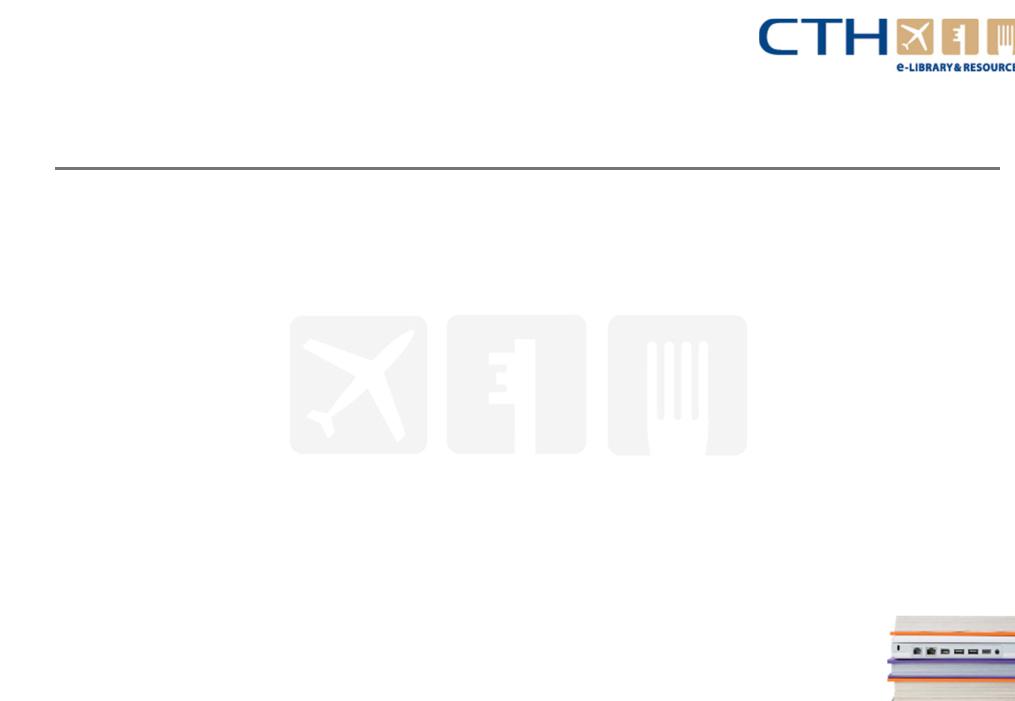
Chapter 2 – Reservation procedure
Handling advance reservation
2.2 Will you accept the booking request? Continued
Some bookings are more desirable than others...
All things being equal, a hotel would prefer to take longer bookings (less costs of guest turnover and room preparation), from known guests (less risk), at the best possible room rate (i.e. not at discounted rates). Some bookings are, therefore, 'better' for the hotel than others.
The discipline of yield management, which we will discuss in detail in Chapter 6, helps the hotel to:
●Forecast how full the hotel is likely to be on a given date in the future (based on previous occupancy and booking patterns, projected into the future).
●Determine how reservations can be 'juggled' to get the fullest possible occupancy at the best possible rate. for (e.g.. on a Sunday evening a discounted rate may have to be offered to fill
a room. However, if the room can be let from the Friday night to the Sunday night at full rate, this same room will generate more revenue).
The hotel may, therefore, turn down a reservation, stating that no rooms are available, because it anticipates being able to let the room at a higher rate, or on more beneficial terms, at a later date.(Chapter 6 will help furthermore.)
www.cthresources.com |
Page 89 |
|
www.cthawards.com |
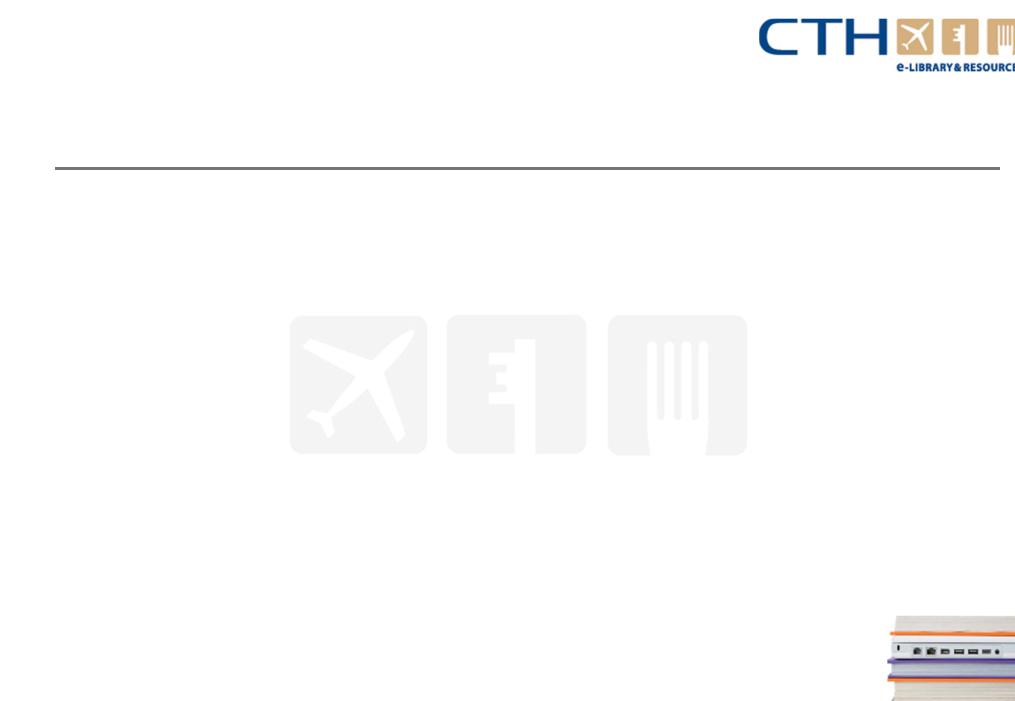
Chapter 2 – Reservation procedure
Handling advance reservation
2.3 Can you fulfill the booking request?
Availability information should be readily visible, using various diary, chart and/or computerised reservations records to fulfil the booking - making it easy to see at a glance what rooms are available.
●If a suitable room is free on the dates requested, the reservations clerk may offer it to the enquirer, quoting any rates and conditions (e.g.. arrival or check-out times) that may influence the decision. If the enquirer accepts, the booking can be logged and confirmed.
●If a suitable room is not free on the dates requested, a number of different options may be available.
– Offer a different room type for the same dates.
– The enquirer may be asked whether (s)he is flexible on dates, stating the dates on which the requested room type are available.
If the guest accepts either of these options, the booking can be logged and confirmed. If neither of the options fits the enquirer's plans, further options can be proposed depending on the circumstances.
–Option of going on a waiting list for the room, to be confirmed by a certain date, subject to availability (e.g.. in the event of a cancellation, or change in room allocations).
www.cthresources.com |
Page 90 |
|
www.cthawards.com |
